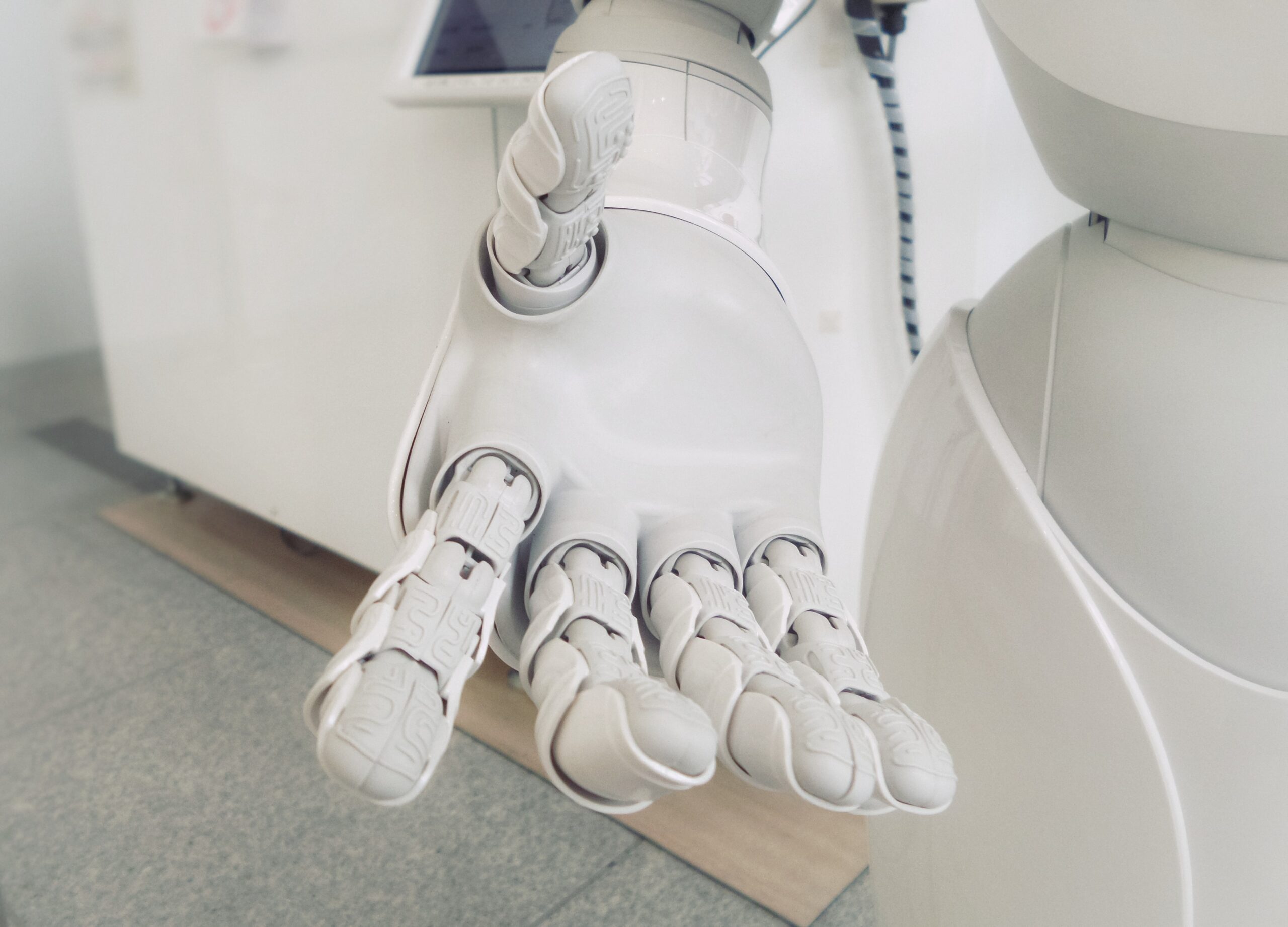Introduction
In recent years, machine learning has become an increasingly popular tool for businesses to gain insights into customer behavior and preferences and make data-driven marketing strategy decisions. In 2023, machine learning in marketing is expected to grow, providing companies with even more opportunities to improve their marketing efforts and increase their bottom line.
According to a survey by Statista, in 2021, about 61% of marketing leaders worldwide were using machine learning to improve their marketing initiatives. This number is expected to rise in the coming years as more and more companies realize the potential benefits of using machine learning algorithms to analyze large amounts of data and automate certain marketing tasks.
ML can predict customer behavior, personalize marketing campaigns, improve targeting, and optimize pricing strategies. By leveraging machine learning algorithms, companies can better understand their customers, tailor their marketing messages to specific audiences, and ultimately improve their return on investment.
In this article, we will explore some of the top ways businesses can use machine learning in their marketing efforts in 2023 and provide insights on implementing these strategies effectively. By staying ahead of the curve and embracing the power of ML, companies can gain a competitive advantage and achieve long-term success.
Table of Contents
What is Machine Learning for Marketing?
Machine learning is a subset of artificial intelligence that enables computers to learn and improve from experience without being explicitly programmed. In marketing, it is used to analyze vast amounts of data, uncover patterns, and make predictions that can be used to make data-driven decisions.
Important Machine Learning Concepts for Digital Marketing
Machine learning has numerous applications, becoming increasingly important as the field evolves. Here are some important concepts in ML for digital marketing:
- Data collection and preprocessing: Machine learning algorithms require large quantities of data to function effectively. Digital marketing data comes from social media, web analytics, CRM systems, and third-party data providers. Data preprocessing is essential for cleaning, transforming, and preparing data for ML models.
- Supervised learning: Supervised learning is a type of machine learning where the algorithm is trained on a labeled dataset to predict outcomes. In digital marketing, this is used for predictive modeling, customer segmentation, and recommendation systems.
- Unsupervised learning: Unsupervised learning is a type of ML where the algorithm learns from unlabeled data to identify patterns and relationships. Clustering algorithms are commonly used in digital marketing for segmentation and personalization.
- Natural language processing (NLP): NLP is a subfield of machine learning that focuses on the interaction between humans and computers using natural language. In digital marketing, NLP is used for sentiment analysis, topic modeling, and chatbots.
- Reinforcement learning: Reinforcement learning is a type of ML where an agent learns from its environment by receiving rewards or punishments based on its actions. In digital marketing, this is used for ad optimization, bidding strategies, and content recommendations.
- Model evaluation and selection: The effectiveness of machine learning models needs to be evaluated to ensure they are accurate and useful. Common evaluation metrics include precision, recall, F1 score, and AUC-ROC. The best model selection for a particular use case depends on model complexity, interpretability, and scalability.
- Feature engineering: Feature engineering selects and transforms relevant variables from raw data for input in machine learning models. In digital marketing, feature engineering is crucial for identifying and extracting meaningful features from various sources like weblogs, customer behavior, and social media.
- Interpretability and explainability: Machine learning models can be complex and difficult to understand, making interpreting and explaining their outputs challenging. Interpretability and explainability techniques like feature importance, partial dependence plots, and SHAP values are used in digital marketing to understand how models make decisions and ensure the ethical use of AI.
Must check: Earn rewards from legitimate Survey Panels on PanelPlace.com marketplace now. It is Free and Easy!
9 Ways Digital Marketers Can Use Machine Learning (ML)
Machine Learning (ML) has revolutionized marketing in the past few years, and it is expected to play an even more significant role in marketing in 2023. Some ways in which ML learning can be used for marketing in 2023.
1. Predictive Modeling and Analytics:
One of the most powerful uses of machine learning in marketing is predictive modeling and analytics. With machine learning algorithms, marketers can analyze customer data and identify patterns that can be used to predict future behavior. This can help identify the best time to offer promotions or discounts, which products to promote, and even which channels to use for advertising.
Predictive modeling can be used to analyze leads and determine which ones are most likely to convert. This helps marketers to focus their efforts on the leads that are most likely to convert, increasing conversion rates and reducing wasted resources.
Example of Machine Learning for Marketing in Predictive Modeling and Analytics
Amazon
Amazon is a well-known example of a company that uses predictive modeling and analytics to personalize its marketing strategies. Amazon’s recommendation engine is a prime example of how predictive modeling and analytics can help personalize customers’ shopping experiences. Based on a customer’s past shopping behavior, purchase history, and search queries, Amazon’s algorithm predicts which products the customer might be interested in and displays them on the home page or in search results.
Netflix:
Netflix is another company that uses predictive modeling and analytics to deliver personalized content to its customers. Based on a user’s past viewing behavior and ratings, Netflix’s algorithm predicts which TV shows and movies the user might like and recommends them on the home screen. This enhances the user’s viewing experience and helps Netflix retain customers by delivering a highly personalized service.
2. Personalization:
Personalization is an essential aspect of modern marketing, and machine learning can be used to create personalized experiences for customers. By analyzing customer data, machine learning algorithms can create personalized recommendations for products and services based on individual preferences, purchase history, and other factors.
For example, if a customer has purchased a gaming laptop in the past, a machine learning algorithm could suggest other gaming-related products such as gaming chairs, headphones, or controllers.
3. Chatbots:
Chatbots powered by machine learning algorithms can be used to improve customer experience by providing quick and accurate responses to queries. With natural language processing (NLP), chatbots can understand and respond to customer queries human-likely, providing personalized recommendations and helping customers navigate the sales funnel.
They can be used to engage with potential customers on a website or social media platform. Chatbots can qualify leads with personalized recommendations or offers by asking questions and providing helpful information.
Example of Machine Learning for Marketing in Chatbots
Sephora:
Sephora, the cosmetics retailer, has a chatbot on its website and mobile app that provides customers with personalized makeup and skincare recommendations. The chatbot uses Sephora’s loyalty program, Beauty Insider, data to understand a customer’s purchase history, skin type, and preferences. It then recommends products and offers tutorials on how to use them.
The chatbot also helps customers book appointments at Sephora stores and find nearby locations. Sephora’s chatbot has been successful in increasing customer satisfaction and driving sales.
4. Image and Voice Recognition:
Machine learning algorithms can be used for image and voice recognition, which can help marketers to identify customer preferences and needs. For example, by analyzing images posted on social media, marketers can identify trends in product usage, preferences, and even customer sentiment.
Voice recognition can be used to create personalized voice assistants, which can help customers make purchases, find information, and interact with brands more naturally.
Voice search allows customers to search for products or services by speaking into their device instead of typing in a search query. By using voice recognition, businesses can ensure that their products or services are included in the search results for voice queries. This can help businesses increase their visibility and attract new customers.
5. Fraud Detection:
Machine learning algorithms can be used for fraud detection, which is especially important in e-commerce. ML algorithms can identify fraudulent activity patterns by analyzing transaction data, helping prevent fraudulent transactions, and protecting customer data.
Fraudulent activities can include click fraud, affiliate fraud, account takeover fraud, and more. By detecting and preventing fraudulent activities, marketers can ensure that their marketing campaigns are fair, effective, and generate a positive return on investment (ROI). Marketers can also protect their advertising budget and build trust with their customers.
6. Social Media Monitoring:
Machine learning algorithms can be used for social media monitoring, which can help marketers to identify trends, customer sentiment, and even potential crises. By analyzing social media data, machine learning algorithms can identify patterns of customer behavior, preferences, and even emotions, which can be used to inform marketing strategies.
Sentiment analysis is a machine learning technique that analyzes social media posts and comments to determine whether the sentiment is positive, negative, or neutral. This information can gauge customer satisfaction, track brand sentiment, and identify emerging trends.
For example, a business can use sentiment analysis to track how customers respond to their products or services on social media. They can then use this information to improve their offerings to meet customer needs and preferences better.
7. Content Optimization
Content optimization in machine learning refers to using machine learning algorithms and techniques to optimize content for specific marketing goals. This involves analyzing and understanding data about user behavior, preferences, and interests and using that information to create and deliver more effective content.
One key area where content optimization in machine learning is used in marketing is search engine optimization (SEO). ML algorithms can analyze large amounts of data related to search queries, website content, and user behavior to identify patterns and optimize content accordingly. For example, machine learning can help identify the most effective keywords and phrases to include in website content or help identify the types of content that are most likely to rank highly in search results.
8. Customer Segmentation
Customer segmentation can tailor marketing strategies and communications to specific customer groups, increasing customer satisfaction, loyalty, and profitability. By dividing customers into segments, businesses can understand their preferences, needs, and behaviors and develop marketing strategies that are relevant and targeted to each segment.
One way machine learning is used in customer segmentation is through clustering algorithms. These algorithms group customers based on similarities in their behavior, demographic information, and purchasing habits. For example, customers who frequently buy organic food, prefer eco-friendly products, and have a high-income level might be grouped into “health-conscious and environmentally-friendly consumers.”
9. Email Marketing
Email marketing is one of the most effective methods of reaching customers and promoting products or services. However, with the increasing volume of email traffic and the complexity of customer preferences, email marketers have adopted more sophisticated approaches to ensure their campaigns succeed. One of the most important advances in this regard has been using machine learning in email marketing.
ML can be used in email marketing through natural language processing. Natural language processing is a type of machine learning that allows computers to understand and interpret human language.
In the context of email marketing, natural language processing can be used to analyze the content of emails and determine which words and phrases are most effective in engaging customers. This information can create more effective email subject lines and content that customers will likely open and read.
Frequently Asked Questions
-
How will AI impact marketing in 2023?

AI will likely have an even greater impact on marketing in 2023. AI-powered chatbots, personalized recommendations, and targeted advertising are widely used, but these technologies will continue evolving and becoming more sophisticated. AI will enable marketers to understand better and predict consumer behavior, leading to more effective campaigns and greater ROI.
-
What are the three main ways AI can help you with your marketing?

AI can help you with your marketing in several ways, but three main ways are Personalization, Predictive Analytics, and Automation.
-
Is it worth learning machine learning in 2023?

Yes, it is worth learning machine learning in 2023 and beyond. Machine learning is a rapidly growing field transforming how we approach problem-solving, decision-making, and innovation in various industries, including healthcare, finance, retail, and transportation. The demand for skilled professionals in this field is constantly increasing and is expected to grow in the coming years.
-
How ML is used in marketing?

Machine learning (ML) is increasingly used in marketing to gain insights from large amounts of customer data and improve the effectiveness of marketing campaigns. ML algorithms can analyze patterns and trends in customer behavior, preferences, and buying history to identify opportunities for personalized marketing messages and recommendations. This enables marketers to target their campaigns more effectively and improve customer engagement and retention.
